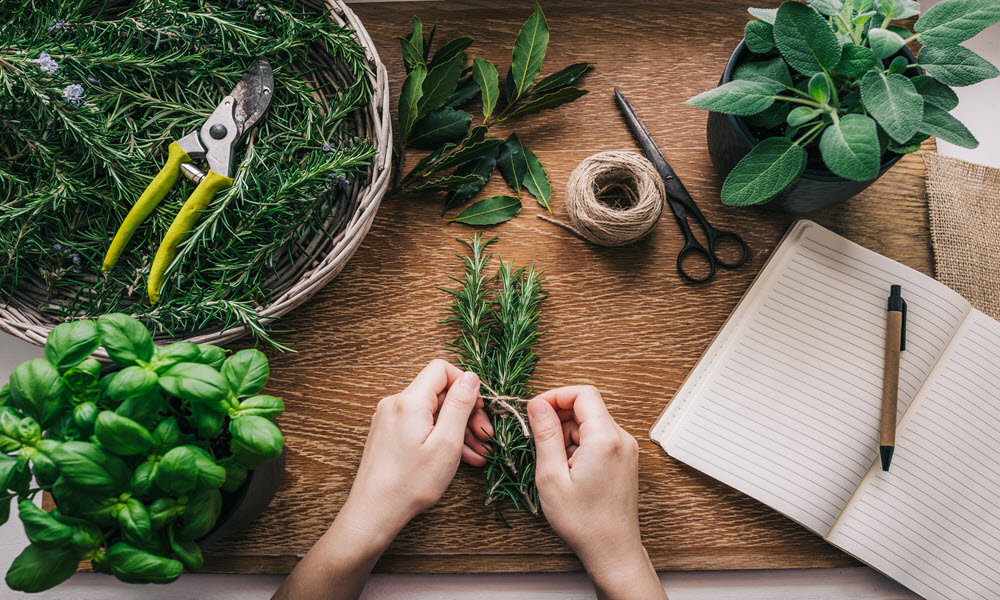https://cdn.steemitimages.com/DQmZQkC3c5jnQrRtLLDC2ywxz73d6ah8G5fFCeNHfNUJGYq/fresh-herbs-HDV8LZE.jpg

Dementia is a condition that primarily affects - but not only - the elderly. It is estimated that around 2% of people over 70 in the world suffer from dementia. It results in progressive cognitive impairment, usually associated with behavioral changes and neurological disorders. There is currently no effective therapy that would stop or reverse the effects of this condition. At least, that’s how it has been so far. The power of herbs For over 10 years, the Chinese Academy of Chinese Medical Sciences and the Australian Western Sydney University have been working on developing an herbal formula that could help treat dementia. This is how the SLT mix was created, containing standardized preparations of ginkgo Biloba, ginseng, and saffron. Preclinical studies have shown that in animal models of dementia, the mixture brings about significant improvements in memory and learning, neuropathology markers, and antioxidant activity. Cumulative study findings also suggest benefits such as reduced areas affected by focal cerebral ischemia, reduced platelet aggregation, and increased free radical scavenging activity. Study Numerous studies have decided to look at Chinese herbal remedies as a treatment for vascular dementia. Until now, the problem was too little research and methodological errors. Some of them also gave ambiguous results. However, several large, well-conducted studies have yielded surprising results. A systematic review of studies of compound herbal preparations has shown that most of them resulted in a significant improvement in cognitive function in patients with dementia, compared to conventional or placebo methods. Four studies combining herbal blends with conventional agents (e.g. cholinesterase inhibitors) showed an improvement in cognitive function compared to using traditional medicines alone. After all, the relevance of these results was disturbed by serious methodological flaws. A separate meta-analysis included 24 Chinese clinical studies conducted in people with dementia. It turned out that the use of herbal blend clearly had a positive effect on cognitive functions, compared to the use of a traditional drug (piracetam) or a placebo. Improvement in daily activities was noted in patients receiving herbs. It was higher than in patients receiving piracetam. However, here too some flaws in the research methodology crept in. In a small, 7-day randomized study, 16 healthy adults receiving the SLT blend were found to have improved working memory. In another small study, patients diagnosed with dementia showed a significant improvement in cognitive functioning after taking SLT. Some have also seen increased blood flow to areas of the brain related to memory, sound processing, and speech. A 12-month study of 325 people with probable dementia showed similar improvements in cognitive functioning. The randomized study included 16 academic centers in China. The results confirm that after 6 months, the SLT mix significantly improves cognitive function and the quality of everyday life in patients with mild to moderate symptoms of dementia. No studies reported adverse reactions resulting from the use of SLT. Every study has some flaws and room for improvement. However, again, this study proves that nature has a remedy for everything. SLT is made from natural herbs that help most people to ease the symptoms of dementia. Who knows maybe, taken for a longer period of time, it is also a remedy. Most likely the issue of effectiveness here is a dosage, which might be very specific to each person. In my opinion, SLT is worth trying rather than drugs with adverse side effects. Read more at healthyasabirch.com

Originally posted here: https://steemit.com/health/@kasia12/do-herbs-relieve-symptoms-of-dementia


No comments:
Post a Comment